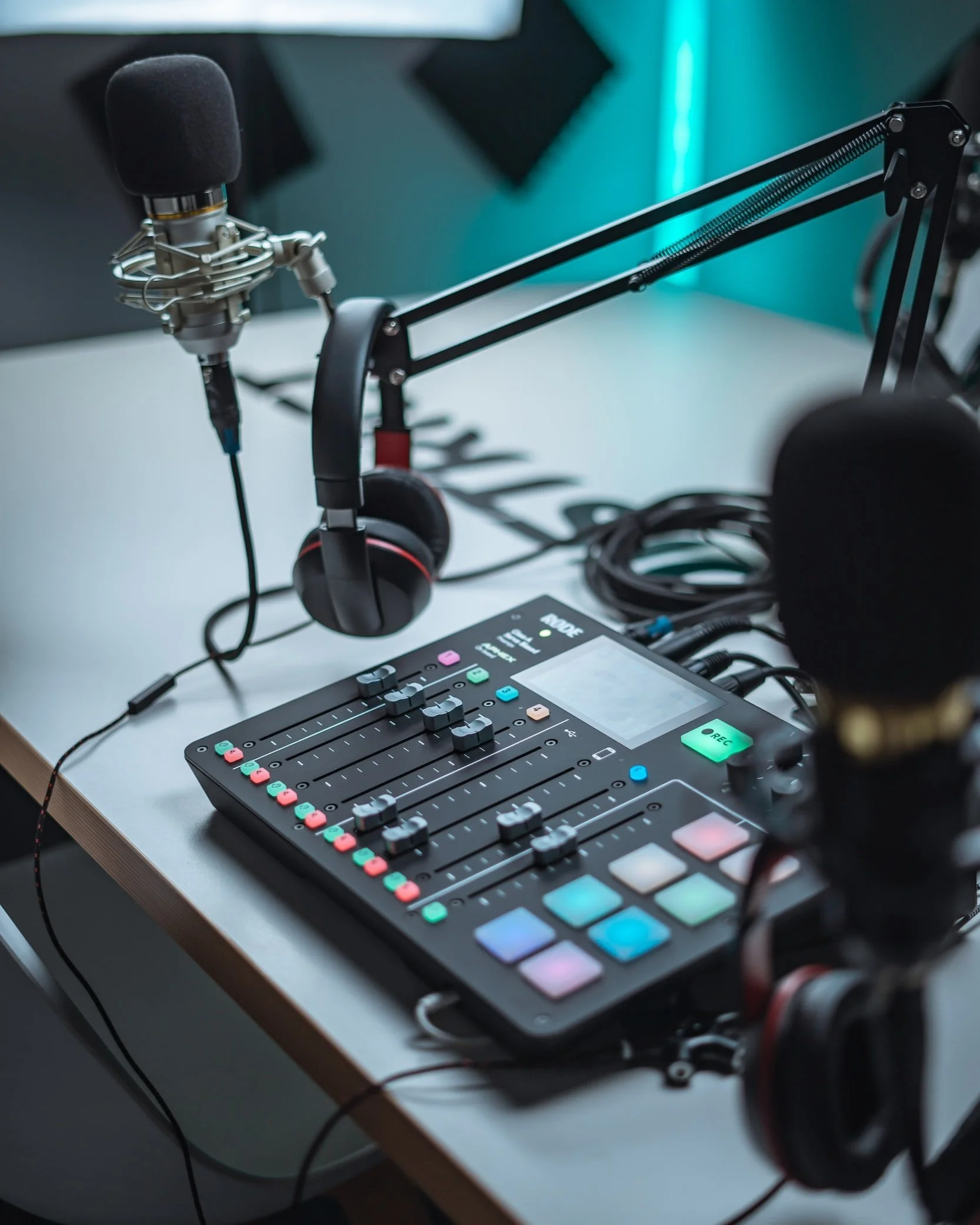Creating a Podcast That Lasts: How to Build and Sustain Your Show
How to hone your podcast's focus, create quality audio, and make a plan to sustain a well-executed workflow
If you've started your podcast, how do you keep it going? Many podcasts fail after just 12 months or less.
Here are some tips on how to hone your podcast's focus, create quality audio, and make a plan to sustain a well-executed workflow for each episode.
And if you’re about to start a podcast, following these basic steps will help set your show up for lasting success.
First, WHY do so many podcasts fail?
Unclear and unfocused goals
It’s hard to find your audience if you don’t know who they are and what you want to talk to them about.
And it’s easy to give up if your podcast doesn’t have a lot of downloads or interest from listeners.
Lack of consistency- not enough time or money
Podcasts require an investment of both time and money.
Your initial monetary investment does not have to be huge at first.
Over time, expect to spend some marketing money, or find people or sponsors to invest in your podcast.
Poor audio and/or video quality
Investing in proper equipment makes a huge difference- get a decent microphone, recorder and headphones.
Tips for building a long lasting pod, from the beginning!
THE BIG IDEA
Ask yourself WHY you want to make a podcast. Really dig in to this question! With millions of podcasts out there, what unique ideas are you bringing that will make people want to tune in?
Think about what topic interests YOU enough to keep going, year after year? What knowledge do you want to impart to your audience? If it’s an interview show, who do you want to have as guests?
Remember, making a podcast is a significant amount of work and will require a monetary investment- which you may or may not recoup with sponsorships and advertising, at least for a while. Are you able to commit to that?
A podcast can be a good way to market your business or expand your career opportunities. What will make it stand out from other podcasts in the same space?
Consider “niching down”- focusing your podcast content on a specific topic to a targeted group of people who can become your faithful audience.
If it’s a passion project or hobby about something that interests you, with the right listener base and sponsors it can become a paid career. But be prepared to put in the work and commitment to grow steadily over time.
Your unique knowledge and experience in this space is a plus! But it’s not a dealbreaker if you’re not an expert- you can have guests who fit that role.
Choose your podcast’s main focus and title.
Keep the title simple and SPECIFIC.
A simple, straightforward title will help audiences find you.
But don’t have a generic title either, such as “The (your name here) Show”
People who listen to podcasts are often looking for specific information or shows that target their interests.
Research! What other podcasts are in your space? What are they called?
DON’T use the same title as someone else’s podcast, even if it seems long defunct.
Time management
Figure out how much time per week you can budget for your podcast.
There’s several ways your time can get sucked up for each episode you want to produce.
These include:
Research
Finding and booking guests, with follow up requests
Scripting/interview questions
Recording time
Editing time
Creating show notes
Posting the podcast
Social media posts
Stick to your schedule!
Predictability & consistency builds listeners!
Figure out a day each week to CONSISTENTLY publish.
If possible, have a set day and time each week to record your show.
Booking guest interviews might throw your schedule off, so use a calendar app to find windows of time for you and your guests.
Be realistic! Posting every 1 or 2 weeks works. Posting every day or more than once per week is probably not sustainable at first.
Recording tips
Record a podcast intro- a QUICK line about what the show is and what it’s about. This helps listeners know exactly what they’re getting.
Be relatable- share experiences and personal stories related to your topic. If it’s a hosted interview show, many listeners are interested in both the interviewee and the host. Your personality can build close personal engagement with your listeners.
Prioritize quality and pay attention to your show length! Keep it a length that holds interest- it’s easy to turn off a podcast if the hosts are going off topic for too long. If you don’t edit the podcast, stick closely to notes or a script.
Interviews
Do your research! Know who your guest is and write down a few questions.
Prep your guests- make sure they understand what your podcast is about and what you want to talk to them about. Try to keep them on topic or be aware of the need to edit, if necessary.
Be an active listener. If you stick too closely to your notes, you might miss something really interesting or important that will enrich the conversation.
Don’t be afraid to start over, do another take, or rephrase a question.
Equipment
If you’re just starting out or want to upgrade, contact us for a detailed list of podcasting equipment available in several price ranges!
Use a decent mic and recording equipment, INCLUDING for guests. It’s easy to turn off a podcast if you don’t like how it looks or sounds.
Sound check/test before recording. It’s easy to be distracted during an interview if you’re nervous or unused to your equipment.
Wear headphones! You need to hear what the recording sounds like.
You don’t need to be in a soundproof room or studio, but a quiet space that’s not too echo-y is always ideal.
Build your podcast team!
Get help to keep going!
Co-host: The co-host or hosts can help share the burden of interviewing guests and the self-conscious job of talking into a microphone solo. You and your co-host(s) can also trade off hosting duties, which will help ease keeping to a weekly podcast schedule.
Podcast Producer - Showrunner - Talent booker - Podcast Manager:
That’s ME! This position goes by many names, but they can handle all the pesky details of booking guests, juggling schedules, providing show quality control AND MORE.
Editor : Editing a show yourself is time consuming and tedious if you don’t have the skills.
Social Media Manager: A podcast today will not grow and flourish without some minimal social media engagement.
Keep going and growing!
Don’t be afraid to make some changes as you learn and grow.
You can rebrand or restart your podcast if necessary, but be careful or you’ll lose your audience. But, if you’re having trouble building an audience, rebranding or relaunching might be a smart idea.
If you start to feel burnout, look at creating seasons for your podcast with a set amount of episodes with breaks in between.
Create mini-episodes or compilation episodes to release when you need a break.
As your podcast grows established and draws more listeners, you can start attracting sponsors and doing live events.





